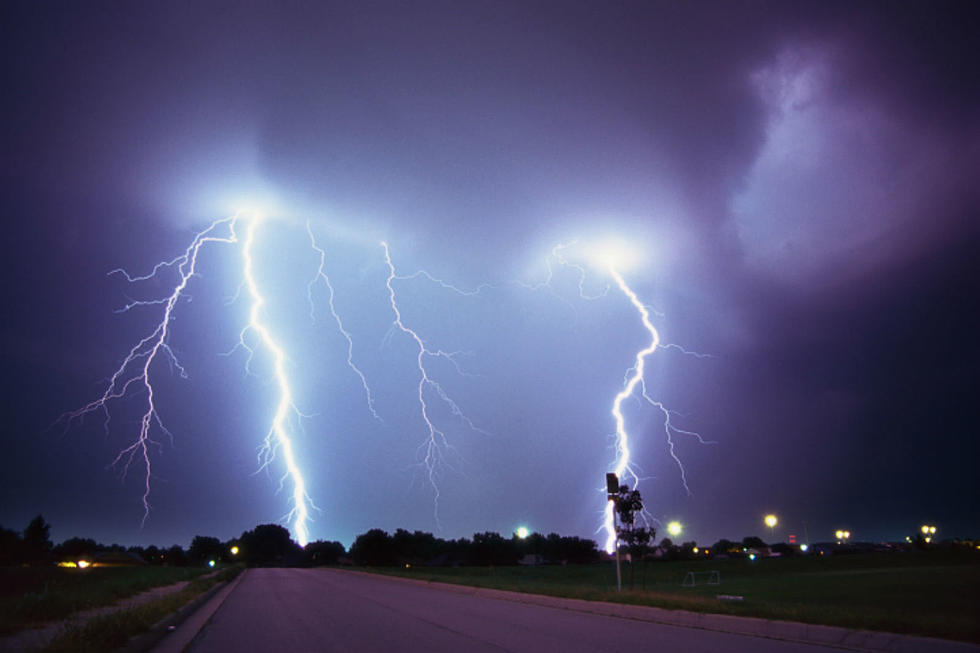
This Week Is National Lightning Safety Awareness Week!
I remember one time, out to camp, my sister trotted over to the edge of the woods to throw out something from the fridge that had gone bad. Not that it matters, but I think it was homemade pickles, haha. Anyway, as she was making her way back across the lawn, out of nowhere, I heard the loudest crack of thunder I've ever heard in my life, accompanied by the brightest flash of light. She wasn't struck, but I can certainly verify that it's the closest I've ever been to such an event.
And honestly, it all happened in the space of 2 seconds. The boom and the flash were simultaneous. She threw that little pickle bowl up in the air and was across the lawn and back into the camp, seemingly even faster than the lightning itself. In retrospect, we can all have a good laugh about it. Although, at the time it rattled her pretty hard.
But this week, our friends with the National Weather Service have brought us Lightning Safety Awareness Week, June 25th-29th! And there's definitely a few things to keep in mind. For instance, did you know that lightning is hotter than the surface of the sun? Crazy!
The amount of electricity is what makes lightning so dangerous. In your house, the electricity comes in at around 15 amps, and at about 120 volts. Lightning is 30,000 amps and 300 million(!) volts. So needless to say, it's beyond dangerous. Cardiac arrest is the most common form of death if you are struck fatally.
Although, it does seem it can do weird things, and has a mind of it's own. I feel like I've heard many anecdotes on TV and such about folks who've survived strikes in the oddest ways. Or I've seen videos of trees that are on fire on the inside, but not the outside. Crazy stuff indeed.
Obviously, if you here thunder, get inside as quickly as possible. Or into a hard-topped metal vehicle. So skip that covered wagon! If you can't get to an immediately safe place, here's a few things you can do to protect yourself:
- Avoid open areas. Don’t be the tallest object in the area
- Stay away from isolated tall trees, towers or utility poles. Lightning tends to strike the taller objects in an area.
- Stay away from metal conductors such as wires or fences. Metal does not attract lightning, but lightning can travel long distances through it.
- If you are with a group of people, spread out. While this actually increases the chance that someone might get struck, it tends to prevent multiple casualties, and increases the chances that someone could help if a person is struck.
Really, in all seriousness, lightning is no joke. Nationally, lightning has already claimed the lives of 5 people. And generally, it could be so easily prevented. So don't mess with Mother Nature on this one. Save that for complaining about the heat, or the snow come winter. But where lightning is concerned, treat it with the respect it deserves.
Here are a couple links you can check out as well, if you want to learn more about lightning safety. If you want a great FAQ, check this out. And of course, if you just want some great lightning safety tips, visit this site as well!
Be safe out there!
More From WQCB Brewer Maine









